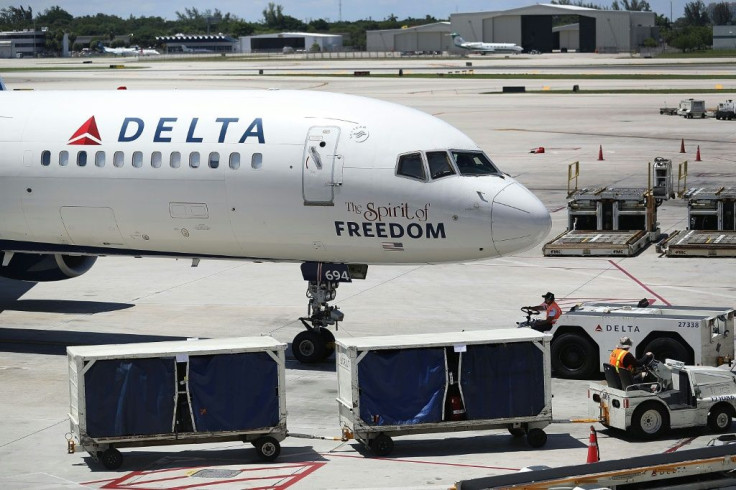Flight Refunds For Coronavirus? What To Do To Get Money Back From Canceled Flights After US Government Steps In

The U.S. Department of Transportation on Friday directed airlines to promptly refund customers who have had their flights canceled due to the ongoing coronavirus outbreak.
"The Department is receiving an increasing number of complaints and inquiries from ticketed passengers, including many with non-refundable tickets, who describe having been denied refunds for flights that were cancelled or significantly delayed," a notice from the Department read.
The federal government has said that it is willing to "exercise its prosecutorial discretion" if refunds are not granted. The Transportation Department is giving time to airlines to implement the refund policy and contact customers.
Customers have the right to demand a refund and do not have to settle on a future flight voucher. If the airline refuses to give a refund, customers can cite the Department of Transportation’s policy and threaten they will file a complaint with the government. Another option would be to call the credit card company and dispute the charge.
The ongoing coronavirus outbreak has devastated the U.S. airline industry, causing companies to slash capacity and cut routes as bookings drop. As part of the $2 trillion stimulus package passed last week, $50 billion is earmarked to help distressed airline companies.
Democratic Sen. Dick Durbin of Illinois defended the bailout in an interview Thursday with CNBC, saying it does not prioritize shareholders of the company and that there are a lot of restrictions on how the money is spent.
“We’ve attached a lot of strings in terms of how this money’s going to be spent and how these airlines are going to conduct their business after we see an end to this,” he said on the program "Squawk Box." “To say that we’re rescuing shareholders — you know these stock prices are taking a beating and I don’t think there’s any rescue that’s come through for these shareholders yet.”
The coronavirus will likely cause a recession for the American economy, as most non-essential businesses have closed or seen significant losses. The longer the coronavirus spreads, the more of an impact it will have on the economy.
© Copyright IBTimes 2025. All rights reserved.





















